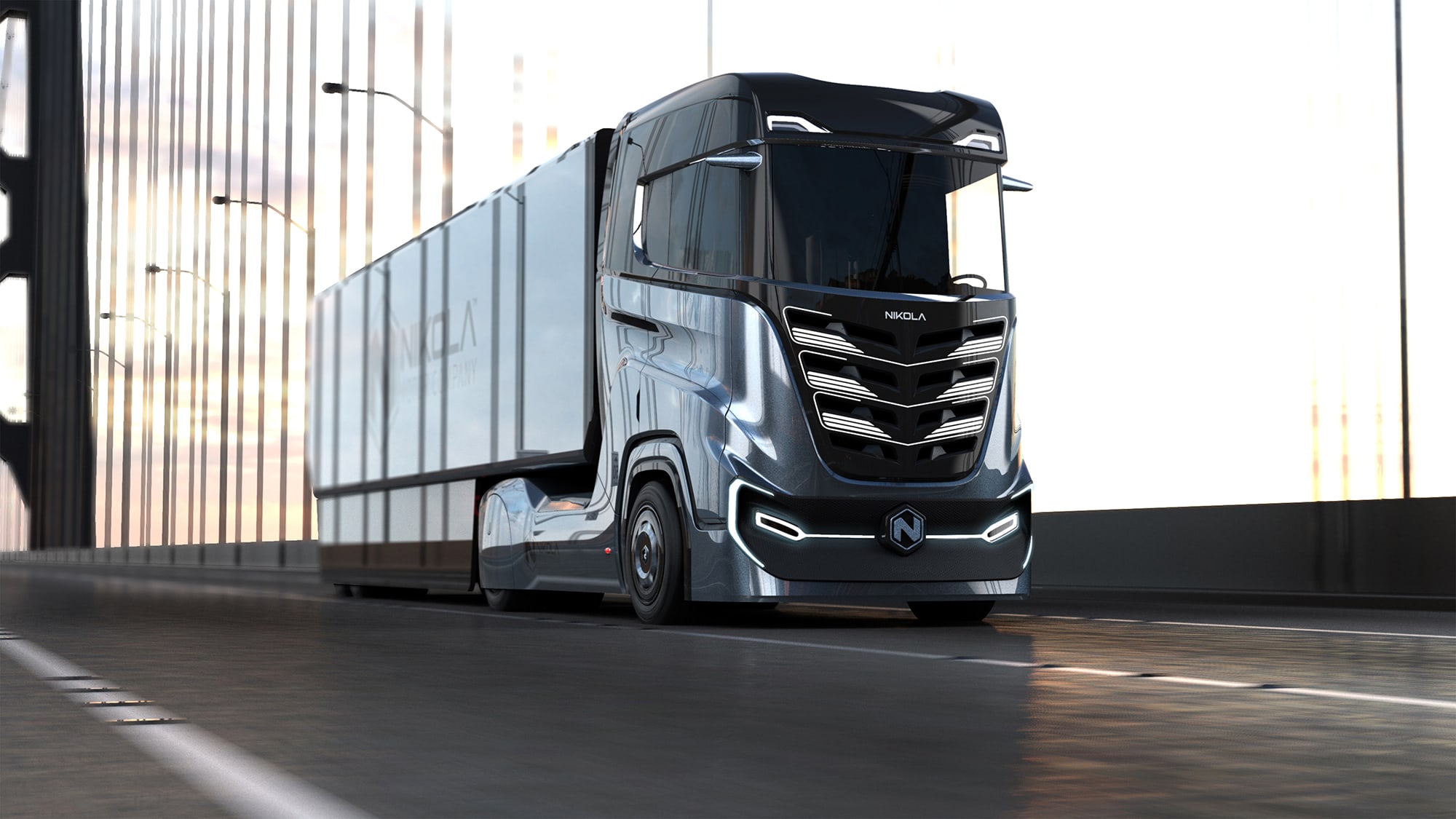Nikola executives seek to calm investor anxiety after fraud claims delay $2 billion deal with GM, shares jump

Nikola Motor Company
Source: Nikola Motor Company
Nikola executives sought Wednesday to calm investor anxiety following fraud claims involving the company’s technology and its founder, Trevor Milton, who resigned as executive chairman last week.
Nikola Executive Chairman Steve Girsky and CEO Mark Russell said the company’s production timeline and factory plans remain on track, even as controversy over Milton’s departure appears to call into question Nikola’s $2 billion deal with General Motors that was scheduled to close Tuesday. While Russell acknowledged that the negotiations continue, he declined to discuss more details.
Girsky, in some of his first public comments since Milton’s resignation, said Nikola’s board remains “very supportive” of Russell and his team’s ability to achieve previously announced production targets.
“We’re excited about the vision. The vision excited a lot of people. The job now is about execution,” Girsky, a former GM executive, told CNBC during a phone interview Wednesday. “And that’s frankly what we’re doing here today. We’re level setting the company. It’s about execution now on that vision.”
Shares of Nikola popped by more than 12% during midday trading, even after its deal with GM was delayed.
GM deal
Regarding the GM deal, Russell confirmed the talks are ongoing but declined to discuss the talks. He said they are still discussing GM’s plans to produce an electric pickup truck called the Nikola Badger, which the company omitted from its updated business plan.
“Our discussions are continuing and when we have something to tell you we will,” Russell said during the Wednesday interview.
Nikola also indefinitely delayed an in-person event where the Badger was expected to be unveiled called “Nikola World” in December, citing concerns about the coronavirus pandemic.
Nikola spokeswoman Colleen Robar said the company did not include the vehicle because executives remain in active negotiations with GM on the $2 billion deal.
The pickup for consumers is considered a side product for the company. The semi-trucks – both battery-electric and fuel-cell powered – are expected to be the company’s main products, which GM was expected to supply the batteries and fuel cells in the coming years.
Defending due diligence
Girsky, a managing partner of VectoIQ, which brought Nikola public on June 4, defended his company’s due diligence on the startup following fraud claims by short-seller Hindenburg Research, which have reportedly led to investigations by the Securities and Exchange Commission and Department of Justice. Russell and Girsky declined to comment on the probes.
“We’re comfortable with the diligence we did,” said the former investment banker. He said due diligence was focused on the company’s current technologies as well as future execution plans.
Girsky said the company brought in its own experts as well as met with Nikola’s current partners such as German auto supplier Bosch. Girsky described the partners as a “validation” of the company.
Many of the claims by Hindenburg involved previous companies Milton ran as well as comments around some of Nikola’s earlier products, including an early semitruck that Milton claimed was functional when it wasn’t. The company earlier this month confirmed it also released a video to make it appear the truck could move on its own volition by rolling it downhill.
“We didn’t spend a lot of time on that truck,” Girsky said. “We spent time on the ones that were driveable right now and the ones they were going to produce in the future.”
Reconfirms plans
Nikola reconfirmed plans to build the semitrucks in an announcement earlier Wednesday. It plans to test its battery-electric Nikola Tre semitrucks in Europe by the end of this year, followed by production in the fourth quarter of next year. The company also said production of a plant in Arizona remains on track to begin manufacturing in 2022, followed by additional construction of the facility in 2023.
It also hopes to partner with another company on hydrogen fuel cell stations by the end of the year and to break ground on first hydrogen fuel station in the second quarter of 2021. It also plans to start testing its fuel cell semitruck in 2022 with production beginning in late-2023.
The coordinated press release and executive interviews are a contrast from the company’s previous media strategy of making grand proclamations over Twitter. It’s something investors should continue to expect going forward, according to the executives.
“Social media is obviously a powerful communication tool. We have some great social media people. We will still use it as a way to communicate with our stakeholders, but you’ll see us more traditional going forward,” Russell said.




